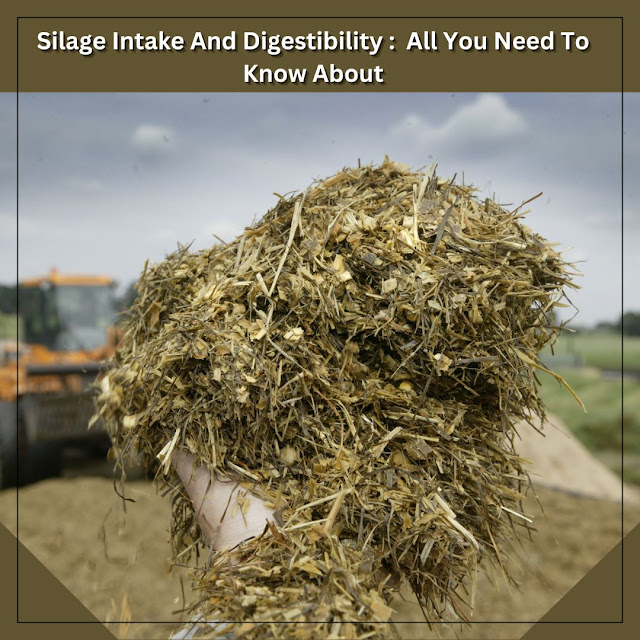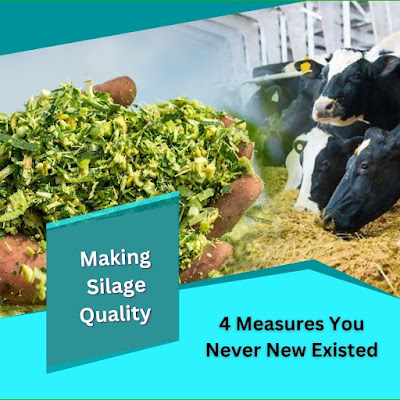Silage Intake And Digestibility: All You Need To Know About
Making corn, wheat, or Sugarcane Silage and checking its quality is one thing, but knowing the intake and digestibility is another essential factor, especially when it comes to feeding it to your cows. Learning the fundamentals of silage intake and digestibility is also necessary to determine its effects on your dairy farm cattle. That’s what we want, high silage digestibility and intake for our cattle. Let us at Silage Agro Private Limited find out all about silage intake and digestibility and how we can increase it.
Factors
determining silage intake and digestibility
The intake of silage is usually lower than that of
fresh forage. It is because of the cows’ habits of roaming around and grazing
on fresh grass. Here are some other reasons why our cows’ have low intake for
silage.
●
The presence of toxic substances created during the
fermentation procedure as amino acids.
●
High concentrations of organic acids and reduced
water-soluble carbohydrate content decrease energy availability for the growth
of microorganisms in our cows’ rumens.
The
solution: Rajpura Silage recommends properly managing the ensiling process to
produce well-preserved fodder. Adding silage additives can increase intake
values, but these can affect digestibility, so we don’t recommend using
chemicals. Remember, there should be a natural balance between silage intake
and digestibility.
Dry
Matter (DM): Dry Matter or DM is the essential part of fodder
your cows consume, but it is the part most people ignore when making silage. A
misconception is that the higher the DM, the more intake. However, the ideal DM
is 30-40%.
Silage
Quality: Not only does this factor affect the intake of sugarcane,
corn, or Wheat Silage, but it also affects digestibility. Let’s discuss
some points regarding this.
●
Poor quality silage will smell foul and taste bad,
which results in low intake.
●
It affects digestibility and can create health
issues in your cows.
●
Quality silage tastes and smells good, increasing
your cows' intake and digestibility, meaning more consumption and nutritional
benefits.
This concludes our blog on silage intake and
digestibility. We at Silage Agro Private Limited hope you got valuable
information from it. Thank you for reading.



Comments
Post a Comment